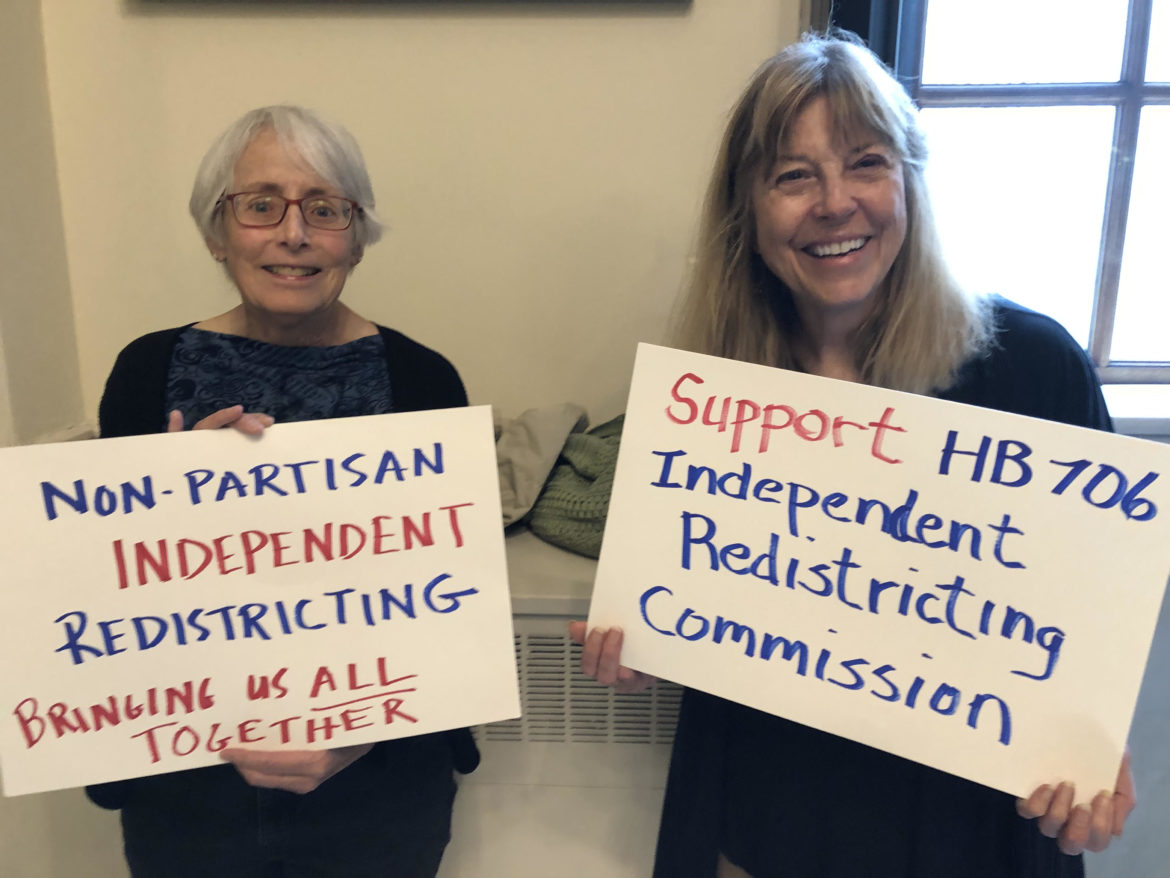GARRY RAYNO, InDepthNH.org
CONCORD — The House sent more than 50 bills to the governor Thursday including an independent redistricting commission by agreeing to Senate changes to House bills.
The approved bills also included waiting periods and background checks for firearm purchases and annulling past convictions for possessing small amounts of marijuana.
The House and Senate also established more than 35 conference committees to negotiate different versions of bills with a deadline a week away.
Among the bills to be reconciled is the state’s $13 billion operating budget for the next biennium which includes House Bills 1 and 2.
The House and Senate budget plans are similar but education funding, a new forensic hospital, a capital gains tax and rate increases for Medicaid providers will be debated during the conference committee which is scheduled to begin early next week.
Whatever agreement the House and Senate reach, the two bills will need to be approved by the House and Senate again and face uncertainty over a gubernatorial veto.
Wednesday Gov. Chris Sununu said he would veto the budget if it includes new or increased taxes and a mandatory paid family and medical leave program.
Other bills to be negotiated between the House and Senate include ones changing how carbon auction revenues are used under the Regional Greenhouse Gas Initiative, gender identification information on driver’s licenses and establishing universal changing stations in public accommodations.
Redistricting
The House voted 208-137 to agree with Senate changes to House Bill 706, which establishes an independent commission to redraw the state’s political boundaries following census data.
The Senate added a provision that would allow lawmakers to vote on the maps for the state’s election districts for the House, Senate, Executive Council and Congress. But the maps would be drawn by the 15-member independent panel.
The panel would be selected from a pool of applicants gathered by the Secretary of State. No commission member could have been an elected official or lobbyist for 10 years.
Gov. Sununu opposed the original bill sponsored by Rep. Marjorie Smith, D-Durham, but has not divulged his position on the revised commission.
Gun Purchases
By nearly identical votes, the House approved Senate changes to bills requiring background checks and waiting periods before commercial firearms sales.
House Bill 109 would require a background check for commercial firearms sales or transfers and establishes a criminal penalty for violating the provisions.
The bill excludes private, noncommercial sales or transfers between individuals, as long as neither individual is prohibited from owning or possessing a firearm under state or federal law.
Opponents argued the bill would require a law abiding citizen to wait at least three days and maybe longer for the state background check, but supporters called it a sensible provision to address gun violence.
The bill was approved by the House on a 196-161 vote sending it to the governor who is expected to veto both bills.
House Bill 514 would establish a three-day waiting period between the time a licensed importer, licensed manufacturer, licensed dealer, or licensed collector sells or transfers a firearm and the person taking physical possession.
The bill was approved on a 197-160 vote and goes to the governor.
Pot Annulments
The House approved Senate changes to a bill that would annul convictions for the possession of small amounts of marijuana. House Bill 399 was introduced after the legislature decriminalized possession of small amounts of marijuana last year.
The bill now goes to the governor.
Biomass Subsidies
The House agreed to continue subsidizing the state’s six wood-burning power plants.
House Bill 183 is similar to a bill the governor vetoed last year but was overridden by the legislature. The bill’s provisions were not implemented because of a challenge to federal regulators.
Opponents said the plants are a boondoggle and have never been able to operate without subsidies that drive up electric rates.
But supporters say the plants help support hundreds of forest industry jobs and help the state diversify its power generation.
The House voted 222-123 to concur with the Senate changes sending the bill to the governor.
Other Approvals
The House also approved Senate changes to the following bills sending them to the governor:
House Bill 25 approving the projects in the $125 million capital budget of new projects and renovations of state and educational facilities.
House Bill 608 to expand the law against discrimination based on gender identity to other areas of law prohibiting discrimination.
House Bill 692 to authorizes a dental benefit under the Medicaid managed care program and requires the commissioner of Health and Human Services to develop a fiscally efficient and valued-based plan.
House Bill 224 to provide a death benefit to emergency medical technicians and rescue squad members killed in the line of duty.
House Bill 531 to allow the delivery of absentee ballots from the disabled or blind voters.
House Bill 651 to allow campaign funds to be spent for child care expenses.
House Bill 226 to reduce the probationary period for new teachers from five to three years.
Killed by the House or Senate Thursday were:
House Bill 277 to require the insurance commissioner to enforce the federal requirement that insurance companies in the state provide parity between mental and physical health benefits and to annually evaluate insurers for compliance.
House Bill 410 to give all stage agencies access to E-911 information.
House Bill 291 to establish a committee to study aspects of hospice and palliative care.
House Bill 736 to establish a commission to study environmentally-triggered chronic illnesses.
House Bill 618 defines contracts for official ballot towns.
Most conference committees will begin work Monday or Tuesday and have a Thursday deadline to file reports.
The conference committee reports have to be voted on by June 27. The new fiscal year begins July 1.
Garry Rayno may be reached at garry.rayno@yahoo.com





